Photos: Fiery Lava from Kilauea Volcano Erupts on Hawaii's Big Island
Lava flow
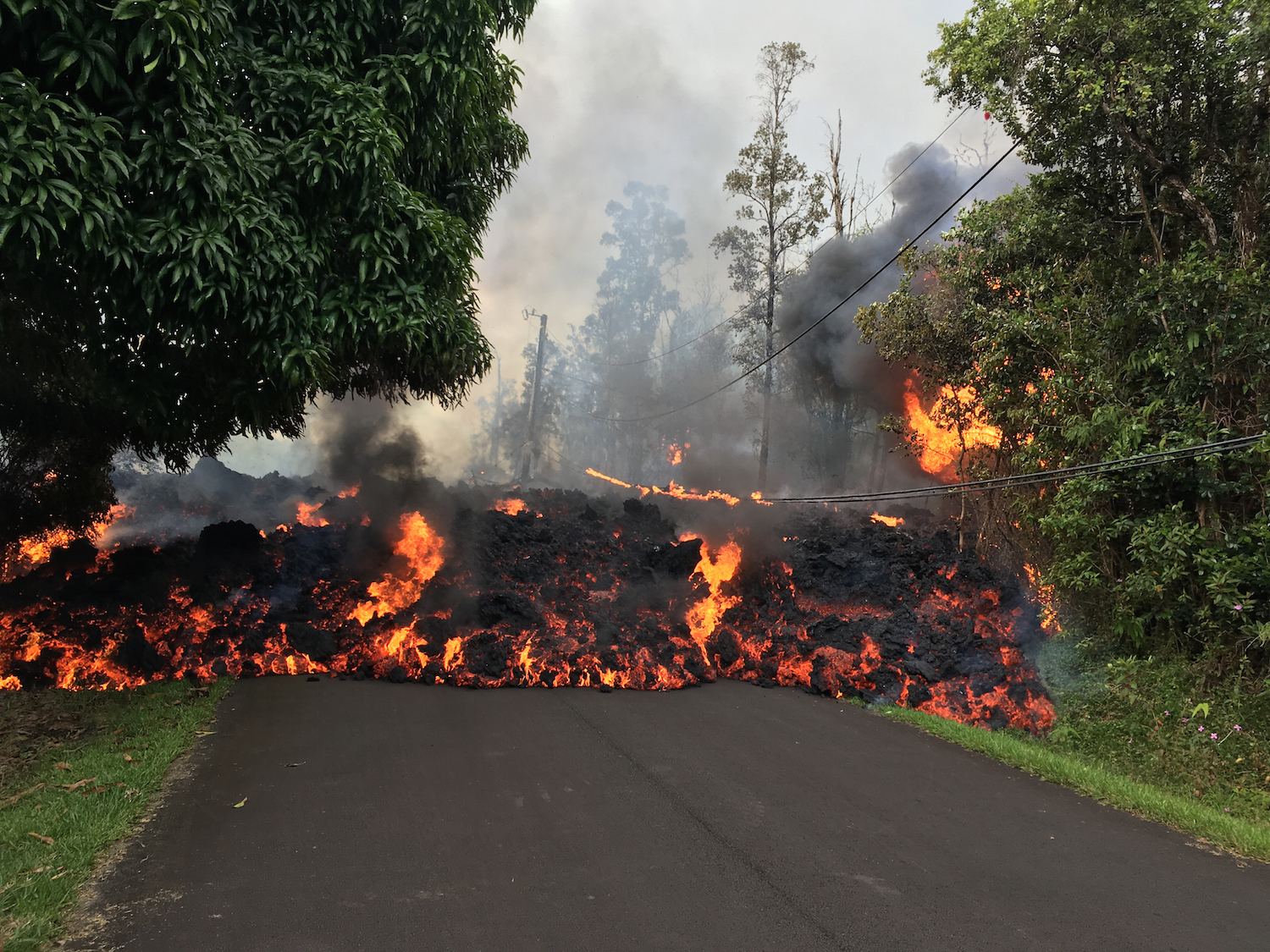
A lava flow moves on Makamae Street in the Leilani Estates on May 6.
Summit lava lake
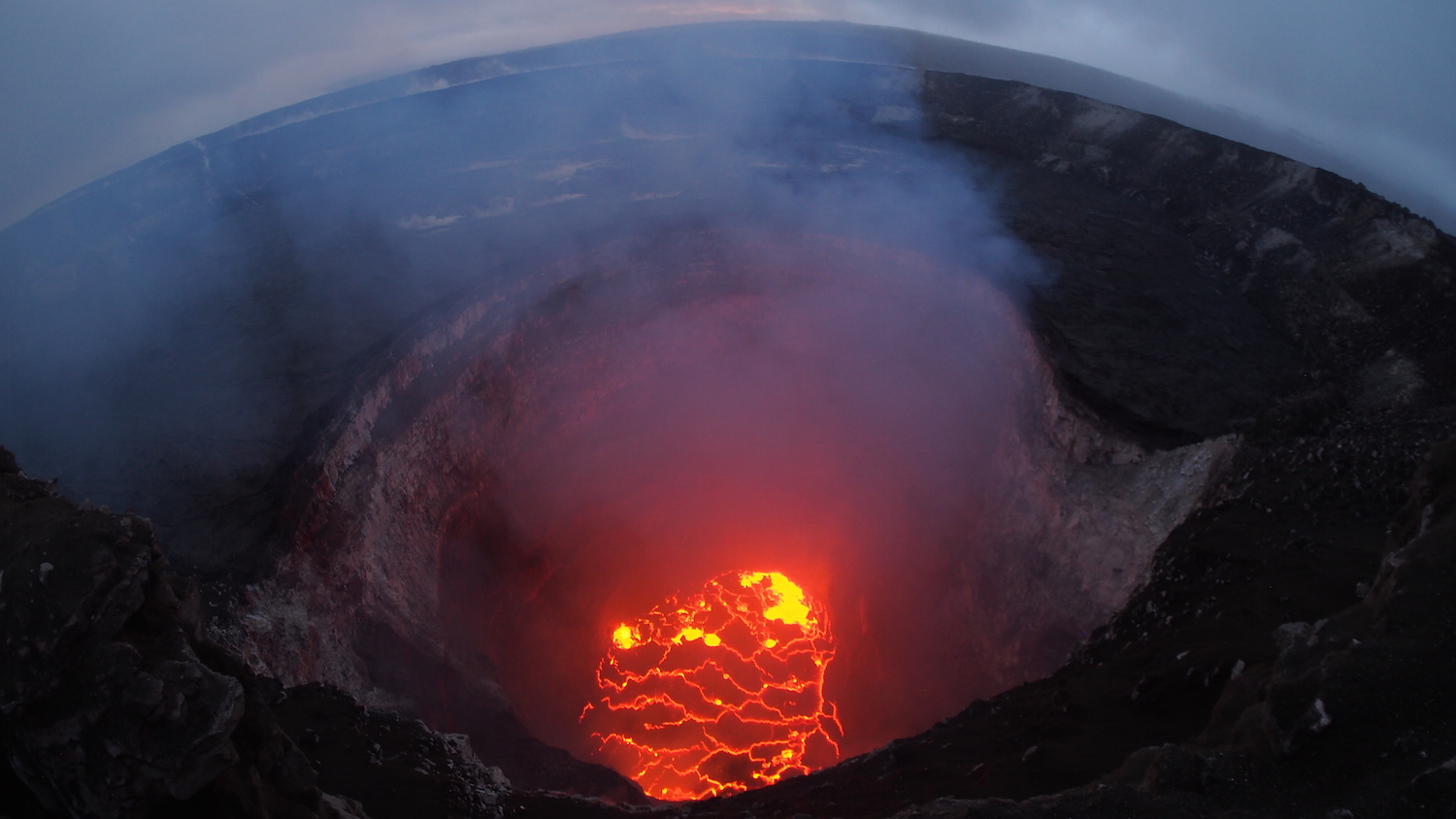
This May 6 photo shows Kilauea's summit, which holds a lake of lava. Since Pu'u 'Ō'ō's increased activity, this lava lake has dropped significantly, the USGS said.[Read more about Kilauea's 2018 eruption here]
Volcano spatter
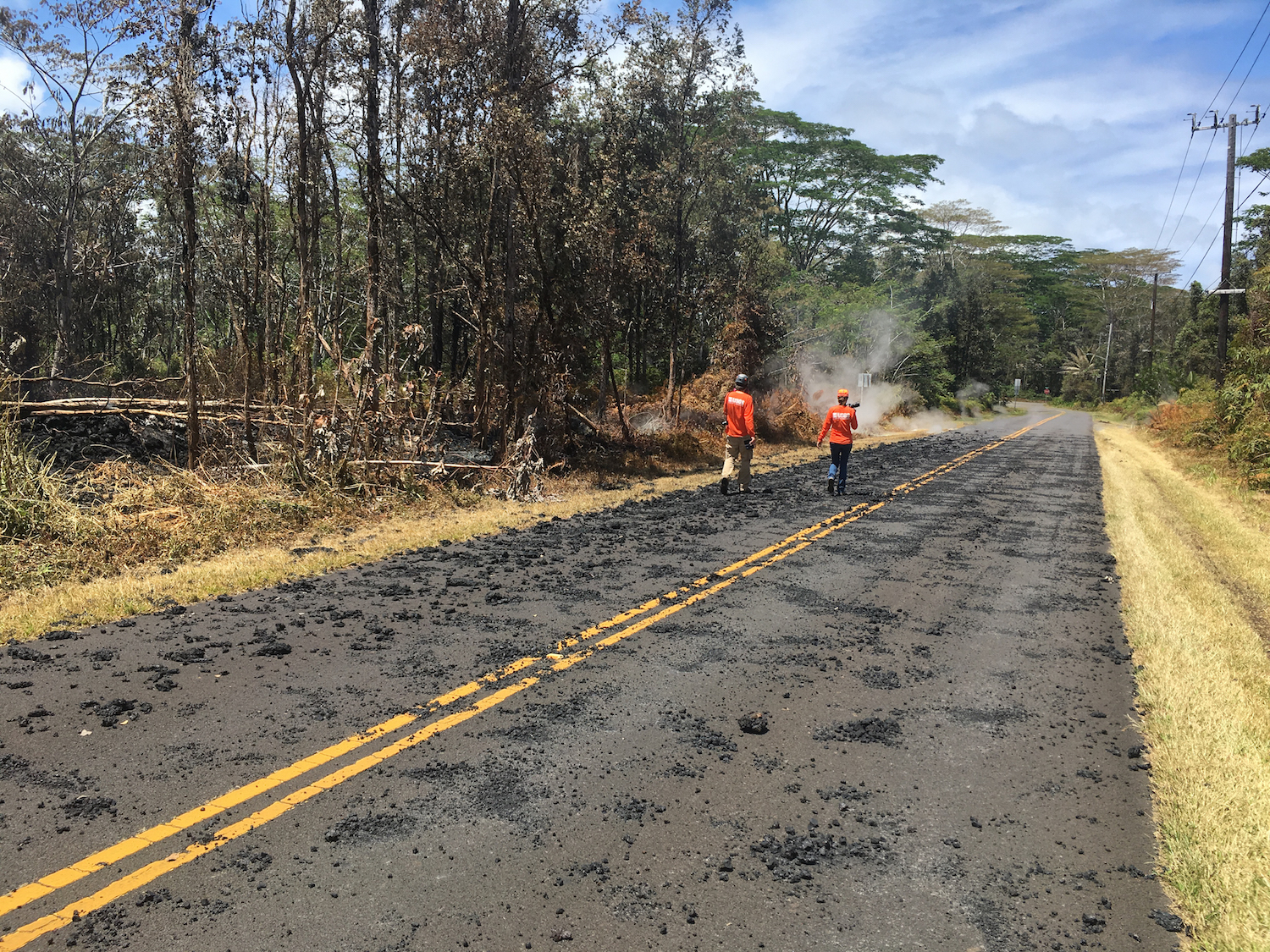
U.S. Geological Survey (USGS) scientists monitor the eruption in the Leilani Estates, a residential neighborhood affected by Mount Kilauea's rumbling activity. This photo, taken on May 6, shows spatter (blobs of lava that were thrown into the air) from a volcanic fissure on Leilani Avenue.
Spatter sample
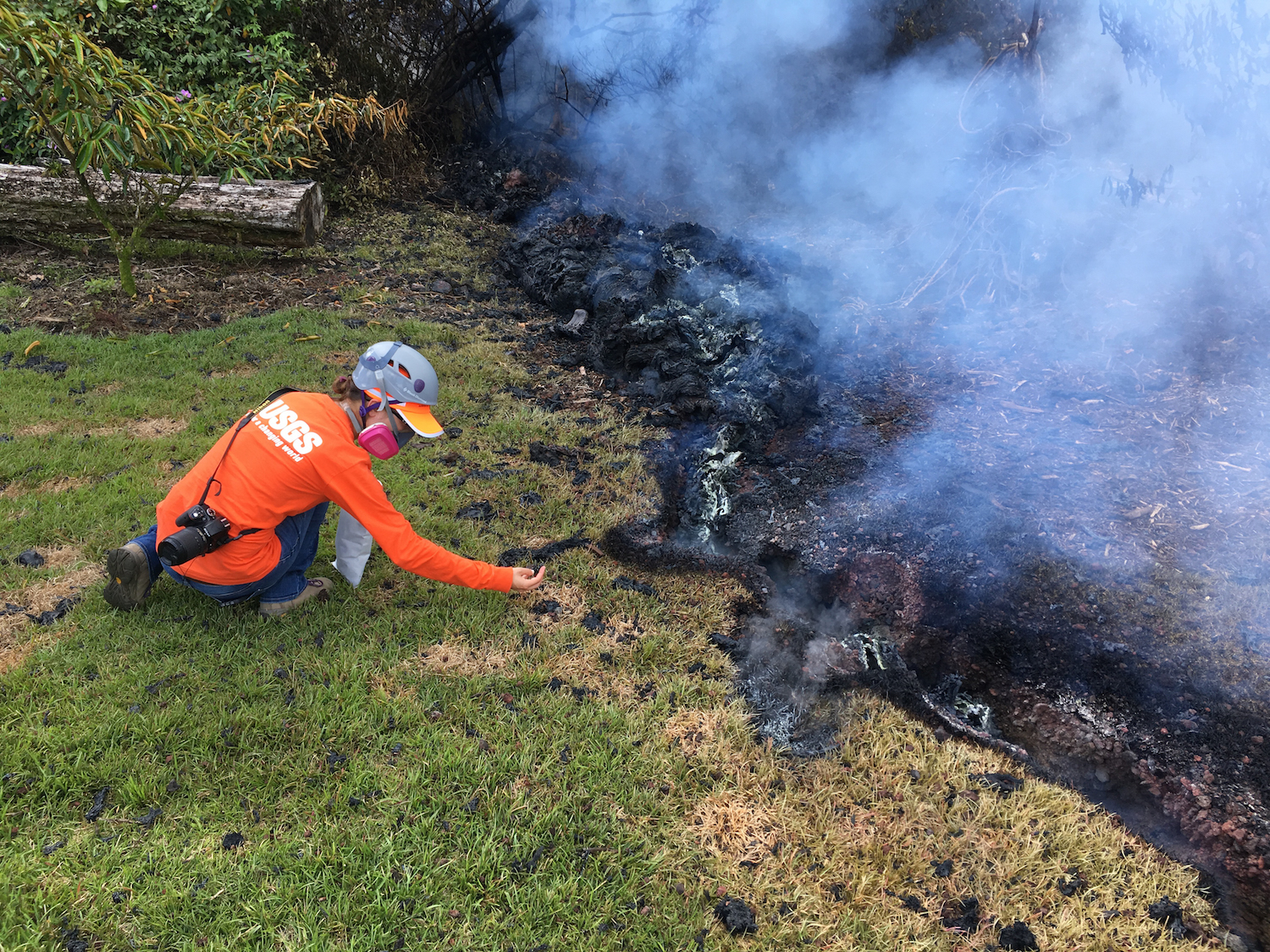
A geologist from the Hawaiian Volcano Observatory collects a sample of lava spatter for analysis on May 6.
Panoramic view
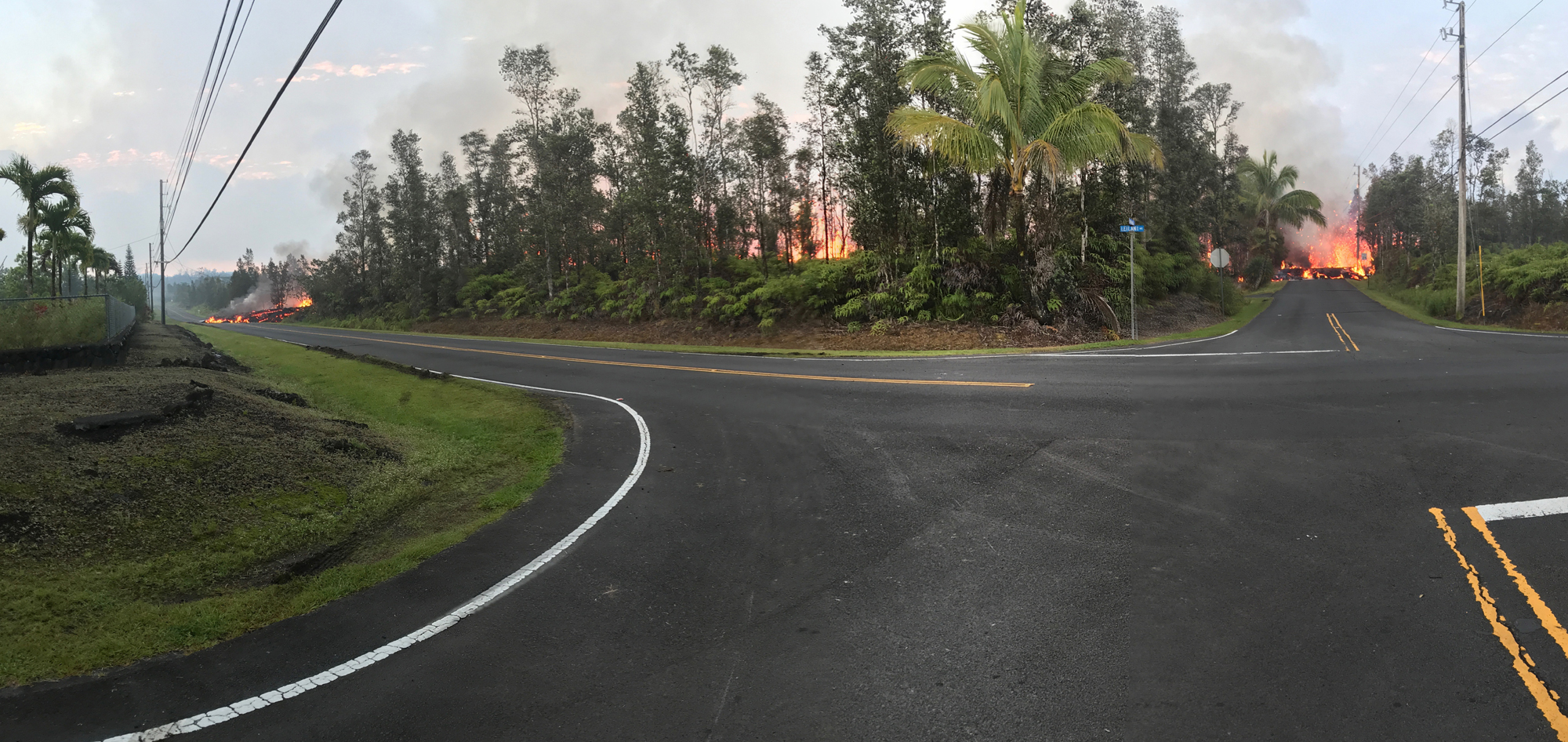
A panoramic view of fissure 7 taken from the intersection of Leilani and Makamae streets in the Leilani Estates subdivision on May 5.
[Read more about Kilauea's 2018 eruption here]
Red hot lava
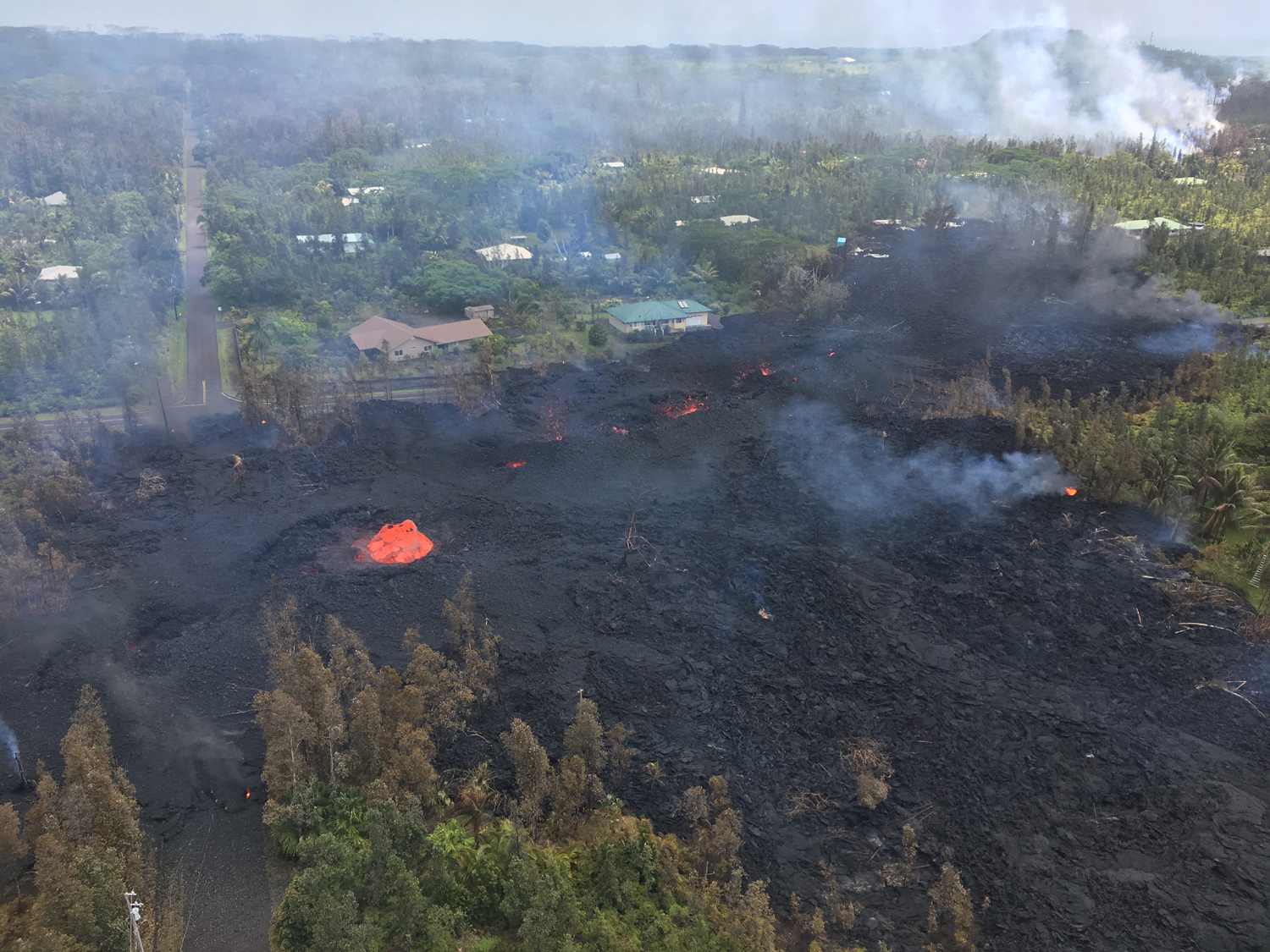
Lava covered the road and forest near fissure 7 on May 5.
Cracked road
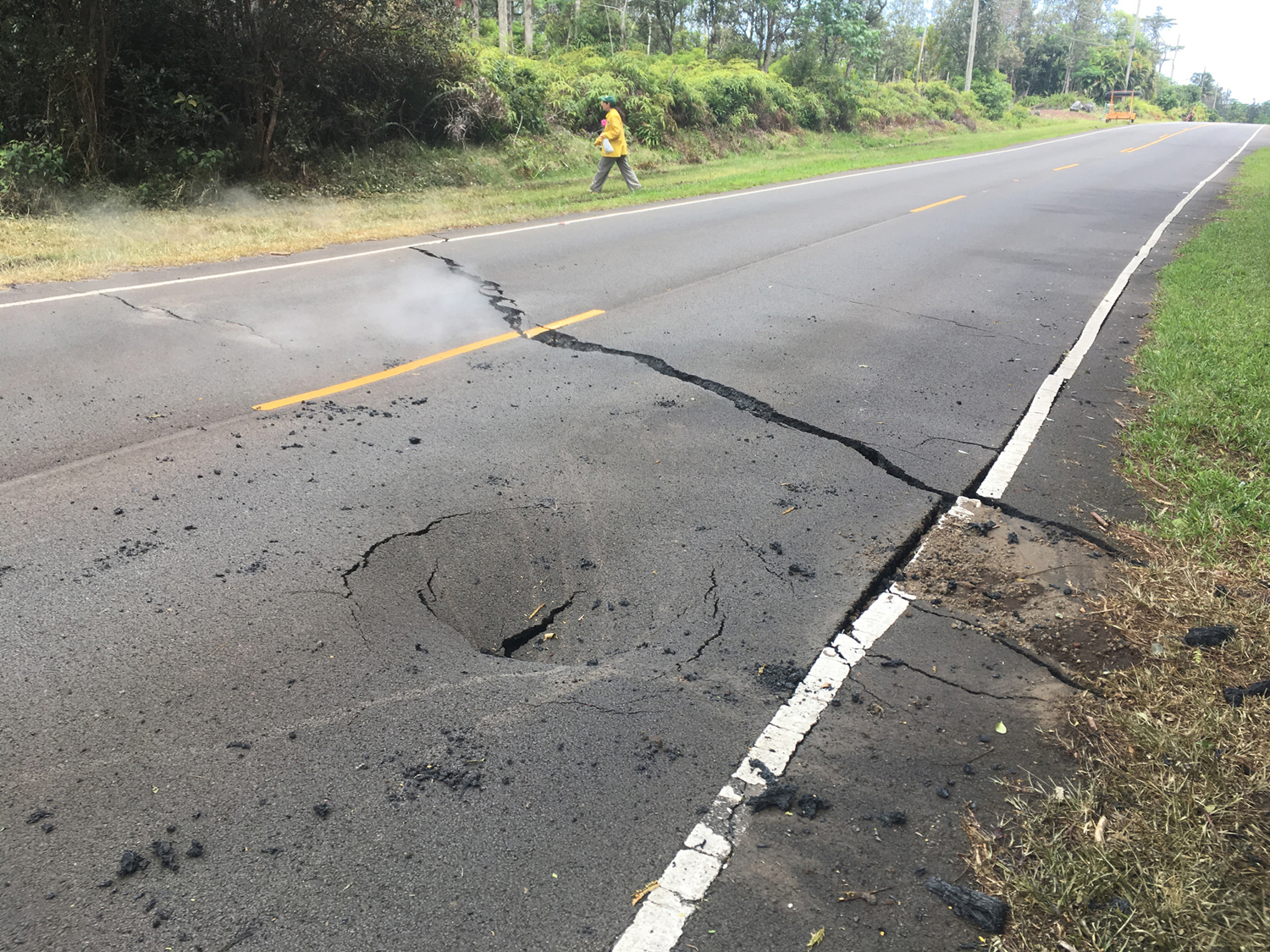
A crack appeared on Pohoiki Road in the Leilani Estates subdivision on May 5.
Sign up for the Live Science daily newsletter now
Get the world’s most fascinating discoveries delivered straight to your inbox.
Road block
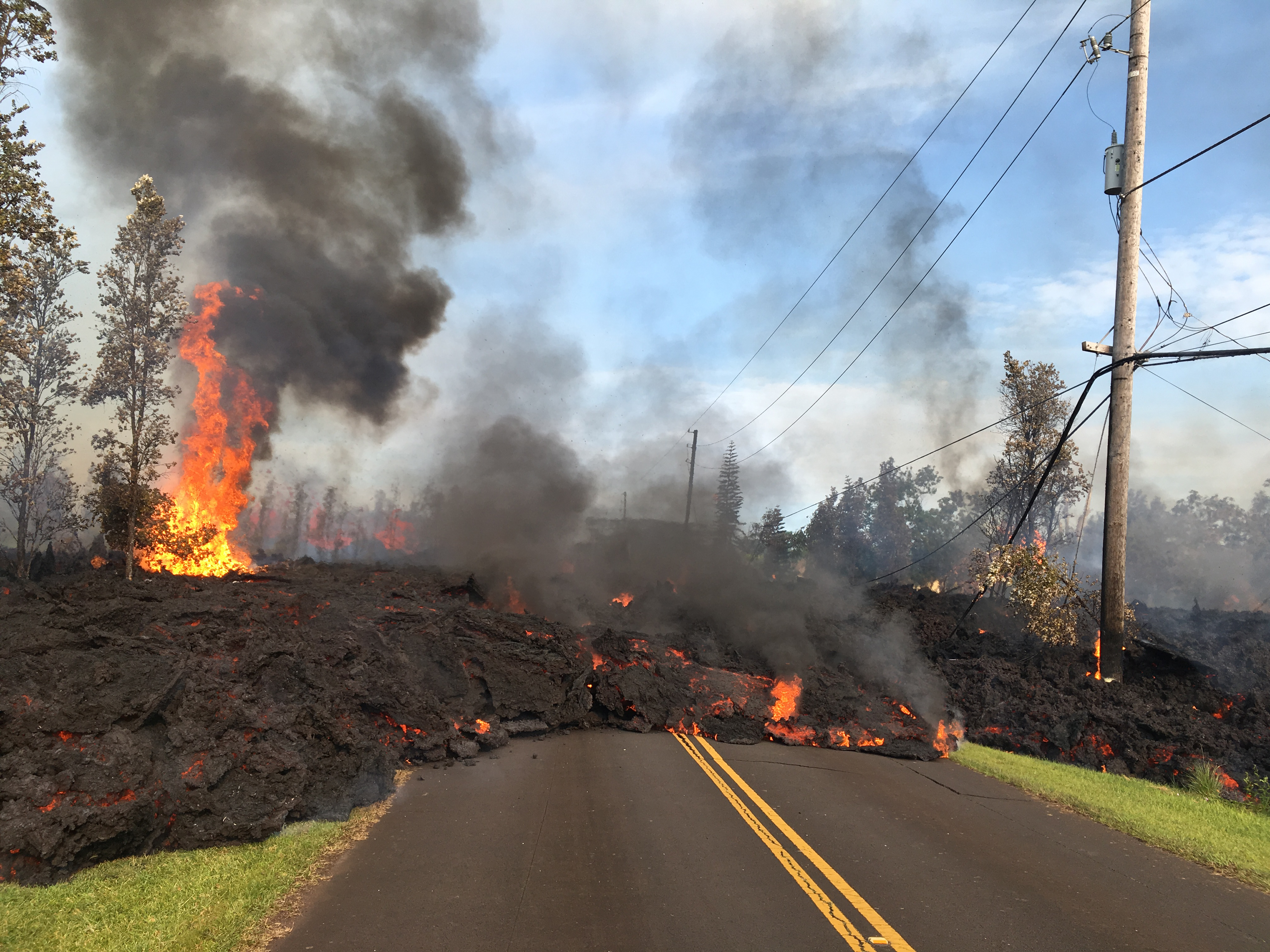
Fissure 7 spewed out lava that slowly advanced on Hookupu Street in the Leilani Estates on May 5.
Thermal map
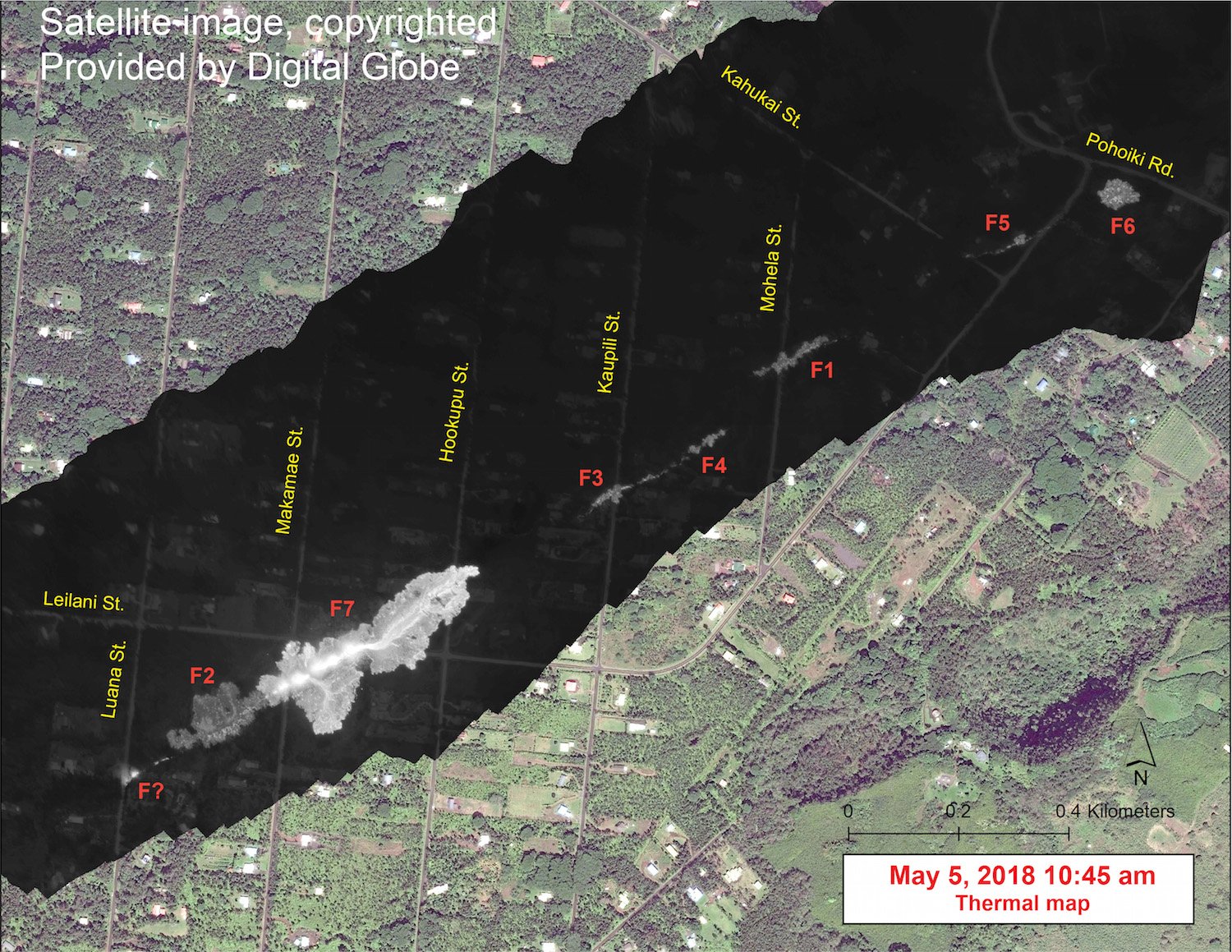
This map shows a mosaic of thermal images collected during a helicopter flight over the fissures at Leilani Estates on May 5. The map is a satellite image provided by DigitalGlobe. The white areas on the dark image indicate the hottest areas, with fissure 7 (F7) showing the most heat from its lava flow.
Fissure fire
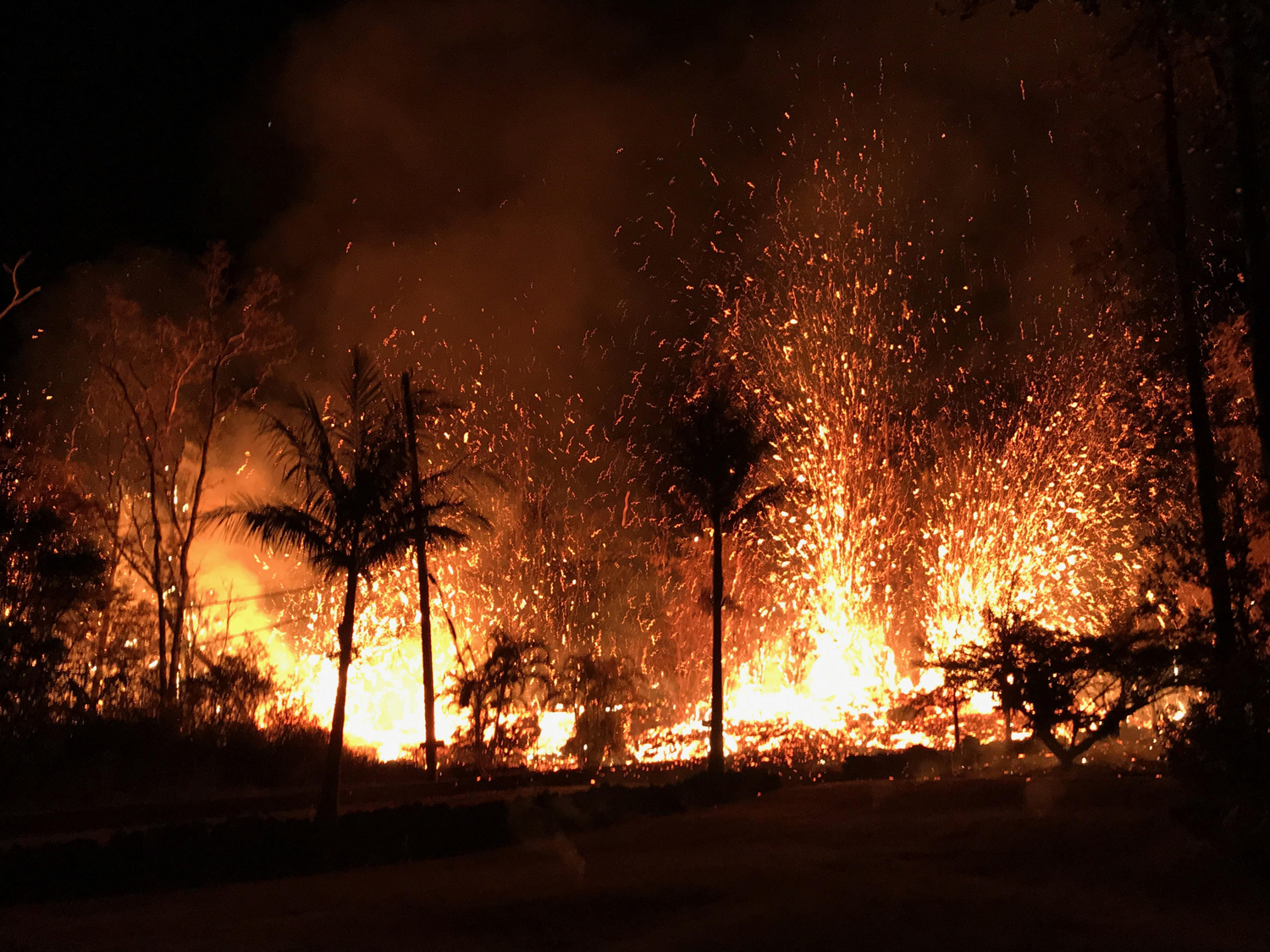
A new fissure erupted with a small spattering of lava on the evening of May 5. Later that night, lava fountains as high as 230 feet (70 meters) were erupting from the fissure.
[Read more about Kilauea's 2018 eruption here]

Laura is the archaeology and Life's Little Mysteries editor at Live Science. She also reports on general science, including paleontology. Her work has appeared in The New York Times, Scholastic, Popular Science and Spectrum, a site on autism research. She has won multiple awards from the Society of Professional Journalists and the Washington Newspaper Publishers Association for her reporting at a weekly newspaper near Seattle. Laura holds a bachelor's degree in English literature and psychology from Washington University in St. Louis and a master's degree in science writing from NYU.









